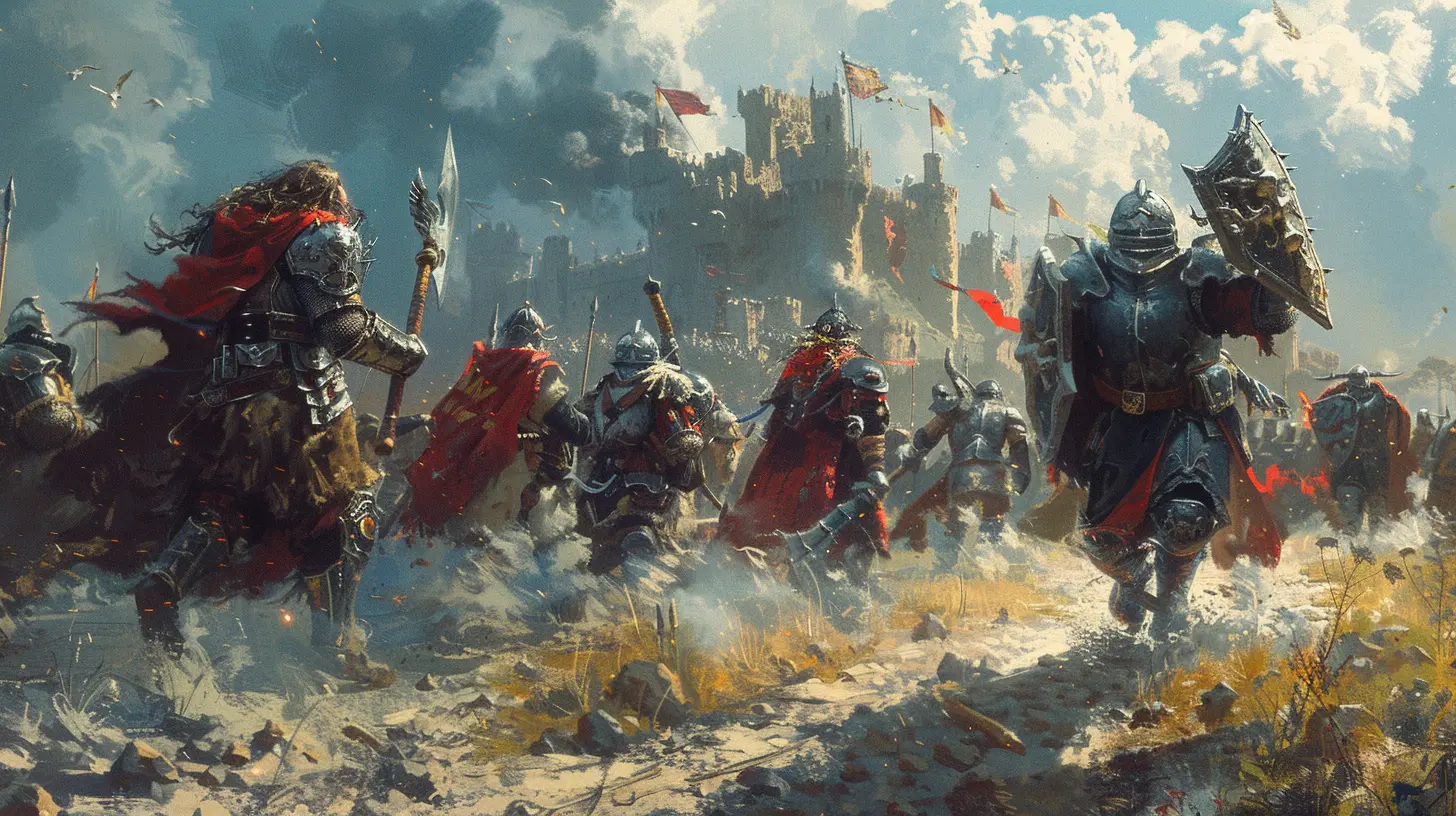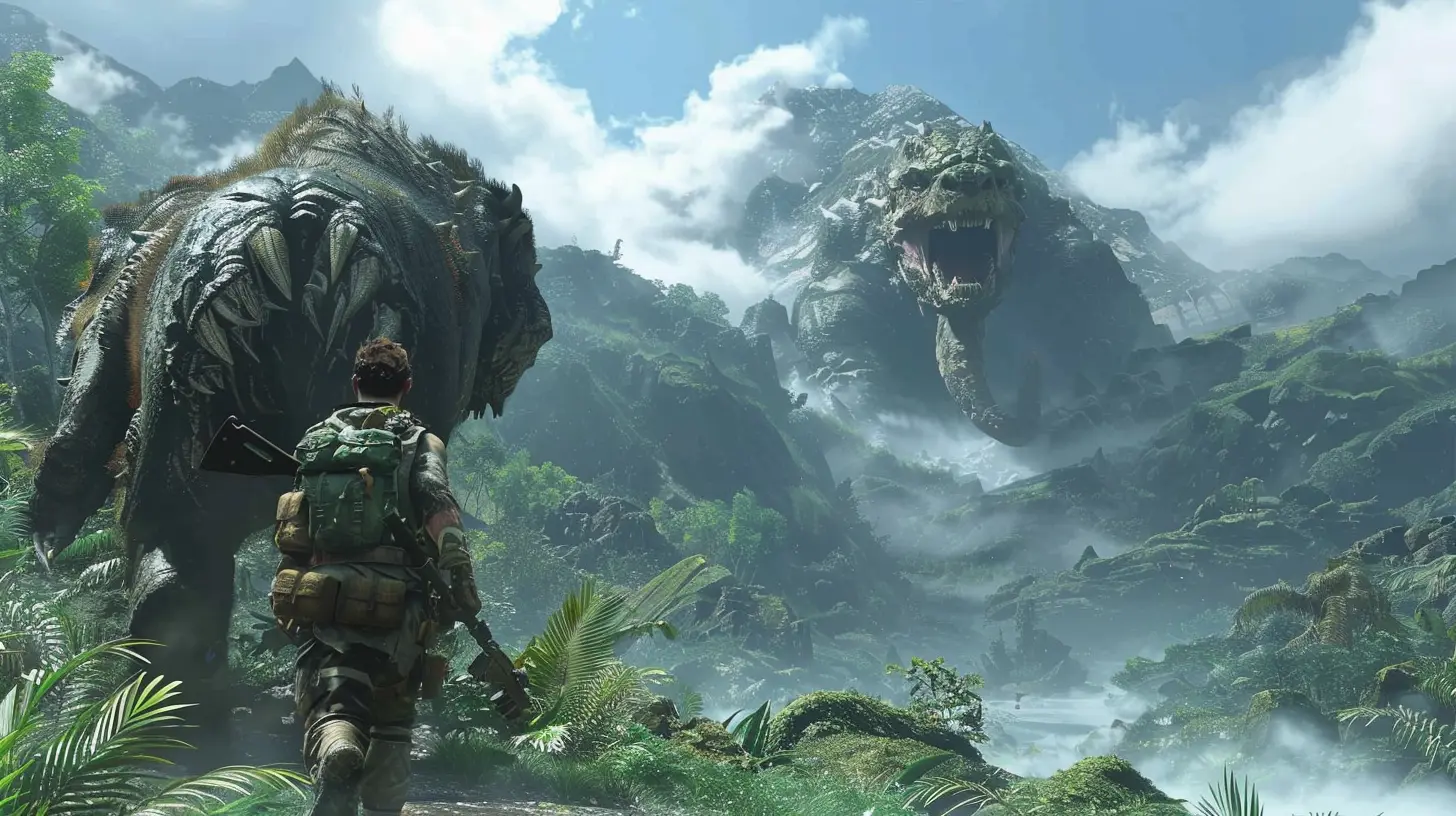The Perfect Balance Between Exploration and Combat in Action Games
16 April 2025
When you fire up an action game, what’s the first thing that hooks you? Is it the breathtaking landscapes begging to be uncovered, or the intense battles that get your adrenaline pumping? For most of us, it’s a mix of both. Action games have a knack for blending exploration and combat, creating worlds where you can lose yourself while staying on your toes. But not every game strikes the right balance. Some lean too heavily on combat, leaving you gasping for a breather, while others turn into glorified walking simulators. So, what’s the secret sauce? How do the best action games harmonize exploration and combat? Let’s dive deep into this.
Why Balance Matters in Action Games
Imagine this: you’re roaming through a dense, otherworldly jungle, picking up clues about an ancient civilization. Suddenly, a group of enemies ambushes you, and you’re thrown into a heart-pounding fight. Moments later, after emerging victorious, you’re back to exploring, the tension dissolving as you discover a hidden cave. That back-and-forth is what makes a great action game.Too much combat, and it starts to feel like a grind. Too much exploration, and you lose that sense of danger and urgency. Balance is everything here—it’s the glue that keeps the pacing just right, ensuring the player remains engaged without feeling overwhelmed or bored.
The Role of Exploration: Creating a Sense of Wonder
Exploration is the soul of action games. It’s the part that lets players breathe, take in the scenery, and feel like they’re inhabiting a living, breathing world. Great exploration goes beyond impressive graphics or sprawling maps; it’s about discovery.1. Worldbuilding That Feels Alive
The best action games don’t just slap together a map and call it a day. They create worlds that tell a story. Think about The Legend of Zelda: Breath of the Wild—how every ruin, mountain, or forest has a story to tell, even without words. The environment itself becomes a character, encouraging players to wander and connect the dots.Games like these reward curiosity. Found a hidden alcove? You might stumble upon powerful loot, a new weapon, or even a snippet of lore that deepens the plot. It’s like unwrapping a gift—you never know what you’re going to get, but the process feels magical.
2. Player Agency and Freedom
Good exploration also means giving the player a sense of control. No one likes being railroaded into a narrow path. Instead, games like Elden Ring and Horizon Zero Dawn let players roam wherever their heart takes them. There’s a subtle charm in being “lost”—it makes every discovery feel hard-earned.Plus, exploration breaks the monotony. After all, you can't be swinging swords or shooting guns 100% of the time. Having moments where you just wander, pick flowers, or climb mountains lets the combat feel more impactful when it eventually rolls around. 
The Role of Combat: Keeping the Adrenaline Flowing
Alright, let’s talk about combat. If exploration is the heart of action games, then combat is the pulse. It’s what raises the stakes and keeps you on your toes. But here’s the catch: combat in modern action games isn’t just about mashing buttons. It’s an art form in itself.1. Variety Is the Spice of Combat
The best action games avoid repetitive combat like the plague. Instead, they mix things up with different enemy types, creative boss fights, and evolving mechanics. Take God of War (2018), for example. One moment, you’re chucking your Leviathan Axe at draugrs; the next, you’re locked in an epic battle with a towering troll. The game constantly keeps you guessing.This variety ensures that combat stays fresh, no matter how many hours you sink into the game. It’s like a rollercoaster—unpredictable and thrilling every time.
2. Room for Strategy
Combat isn’t just about brute force; the best action games weave strategy into the mix, making every encounter feel like a mini-puzzle. Should you dodge and counter? Or maybe switch weapons mid-fight for that extra edge?Take the Dark Souls series, for instance. Every enemy encounter feels deliberate, forcing you to read your opponent’s moves, manage your stamina, and choose your moments carefully. Button-mashing won’t get you far here—it’s all about mastering the system. 
Walking the Tightrope: Striking the Balance
So, how do developers create this perfect blend of exploration and combat? There’s no one-size-fits-all formula, but the best action games follow a few key principles:1. Dynamic Pacing
Think of a great action game like a well-composed movie. There are peaks and valleys—moments of high intensity followed by quieter, reflective periods. A game like Uncharted 4: A Thief's End nails this. You’ll have sequences of high-octane shootouts and chase scenes, followed by peaceful moments exploring ancient ruins or solving puzzles.The ebb and flow keep players invested because there’s always something to look forward to. It’s the gaming equivalent of “don’t bore us, get to the chorus.”
2. Rewarding Exploration with Gameplay Perks
One way to seamlessly tie exploration and combat together is to make exploration directly impact your combat effectiveness. Take Tomb Raider (2013)—the more you explore, the more resources and upgrades you find, making you stronger in fights.It’s a win-win. Exploration doesn’t just feel like a side activity; it becomes integral to your survival in combat.
3. Immersive Story Integration
Games that integrate combat and exploration into the narrative often feel the most cohesive. In The Last of Us Part II, for instance, every moment—whether you’re scavenging for supplies or fighting off infected—feels tied to the story. You’re not just exploring for the sake of it; you’re doing it because the world, the characters, and the stakes demand it.Balancing Challenges: When Things Go Off the Rails
Now, let’s address the elephant in the room: not all games get this balance right.Some games overdo the combat (cough Dynasty Warriors), making fights feel more like chores than thrilling encounters. Others lean so heavily into exploration that it starts feeling aimless (No Man’s Sky in its early days, anyone?).
The key is moderation. Players need that mix of tension and relief to stay hooked. It’s like a good meal—too much spice, and you’ll burn out; too bland, and you’ll lose interest.
Why Balance Resonates with Players
At its core, the balance between exploration and combat speaks to our desire for variety. No one likes monotony, especially in games. Exploration taps into our curiosity, while combat feeds our need for excitement and challenge. When a game balances both, it creates a symphony of emotions—exhilaration, tension, wonder, and relief.Think about it: isn’t that what gaming is all about? Stepping into another world and experiencing every high and low it has to offer?
Final Thoughts: The Gold Standard of Action Games
Finding the sweet spot between exploration and combat isn’t easy, but when a game nails it, the results are unforgettable. Titles like Ghost of Tsushima, Assassin’s Creed: Odyssey, and Bloodborne prove that it’s possible to create a cohesive experience where adventure and action coexist beautifully.So, the next time you boot up an action game, pay attention to how it balances these two pillars. Does it give you the freedom to explore without dragging? Does combat feel exciting without becoming a slog? If the answer is yes, then congratulations—you’ve stumbled upon a gem.
all images in this post were generated using AI tools
Category:
Action GamesAuthor:

Tina Fisher
Discussion
rate this article
4 comments
Karina Butler
Fascinating topic! I’m eager to learn how developers achieve that ideal blend. Do mechanics like resource management or environmental storytelling play a role in enhancing both exploration and combat? It would be great to see examples of games that master this balance!
May 17, 2025 at 4:10 AM

Tina Fisher
Thank you for your interest! Indeed, mechanics like resource management and environmental storytelling greatly enhance both exploration and combat. Games like *The Legend of Zelda: Breath of the Wild* and *Dark Souls* exemplify this balance, offering rewarding exploration that directly impacts combat experiences.
Luna McVicar
This article effectively highlights the delicate interplay between exploration and combat in action games. It emphasizes how a well-crafted balance enhances player engagement and satisfaction, allowing for immersive environments that reward curiosity while still delivering thrilling combat experiences. Great insights!
April 23, 2025 at 3:41 PM

Tina Fisher
Thank you for your thoughtful comment! I'm glad you found the balance between exploration and combat compelling in enhancing player engagement. Your insights are much appreciated!
Onyx Hudson
This article brilliantly captures the essence of action games, highlighting how the seamless integration of exploration and combat elevates player engagement. Striking that perfect balance is crucial for creating immersive and memorable gaming experiences.
April 17, 2025 at 4:22 AM

Tina Fisher
Thank you! I'm glad you found the article resonates with the importance of balancing exploration and combat in action games. Your insights highlight exactly what makes these experiences so engaging!
Skye Cox
Great article! It’s fascinating how the blend of exploration and combat can elevate action games to new heights. Finding that perfect balance keeps players engaged and eager for more. Can’t wait to see what’s next!
April 16, 2025 at 5:02 PM

Tina Fisher
Thank you! I'm glad you enjoyed the article. The balance between exploration and combat truly makes action games memorable. Exciting times ahead!



